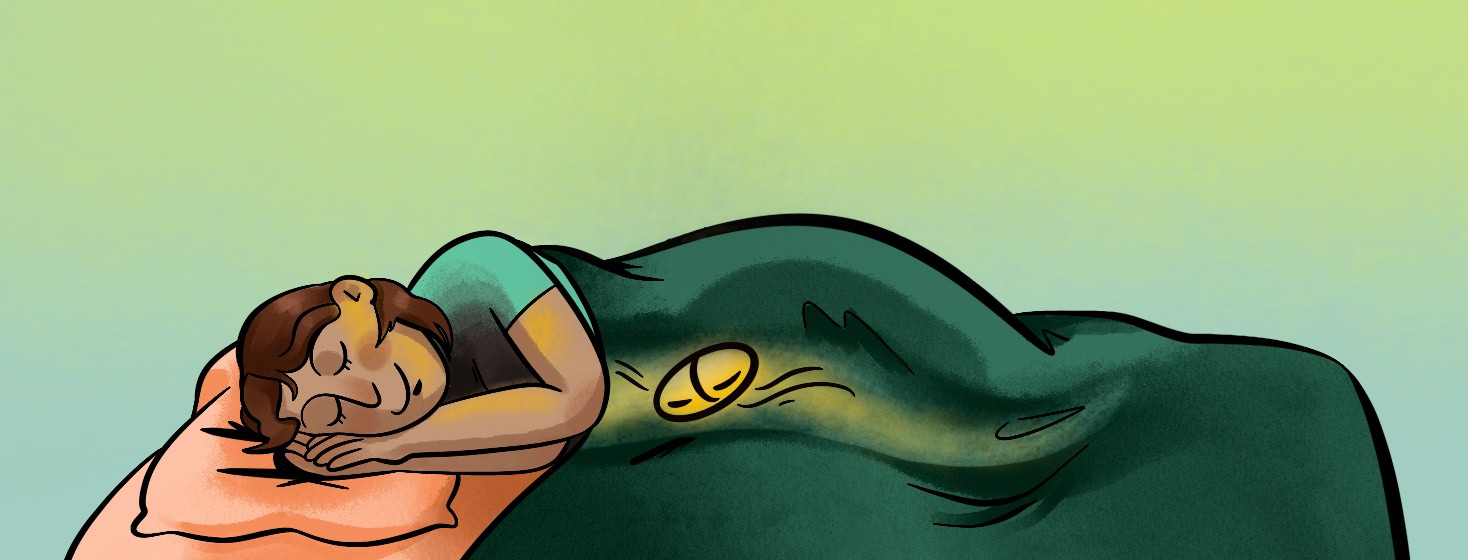The Joy of Sleep
Insomnia has ravaged my life. For decades, I slept poorly until I didn’t sleep at all. I was diagnosed with chronic and relentless restless legs syndrome (RLS). Even when that was well treated, I remained awake for most of the night. I had a sleep study done and was diagnosed with hyperarousal – my busy little brain was active 24/7, decimating any sense of peace. Eventually, it took medications and therapy to help my insomnia.
Priortizing my sleep health
Over the course of 5 years, my mental health deteriorated at a staggering rate for a complex multitude of reasons. I had 3 psychiatric inpatient stays. One of the important strategies for improving mental illness is to sleep well.
Mental illness is psychologically, physically, and debilitatingly exhausting. Being unable to sleep worsens everything. It becomes a vicious cycle.
I became critically psychologically unwell in 2020 and went in for my third hospital stay. Finally, my sleep became a priority for the treating physicians.
Combining medications and therapy
Because of my severe RLS, there are a great number of sleep aids that do not work for me. Some medications just exacerbate RLS and make sleep even worse. One antidepressant I was given specifically for sleep, kept me awake for 3 days.
So, the doctors consulted with other doctors and did their research. Over the course of my 9 week's stay, they eventually found a little cocktail that works for me. I take 2 medications for RLS, 2 mood stabilizers that have a relaxation effect, and 1 sleeping tablet. With my medical team, we have worked on reducing every medication to the lowest dose. Five medications are a lot to support sleep, but it is a jolly sight better than not sleeping.
Medication, in combination with 5 years of psychological therapy has changed my life. While many people in their 50s find sleep becoming more and more elusive, for me it has become more and more reliable. And it is a joyous thing.
My experience before meds
In the past, I felt like my days never ended. My husband would go to bed at 10 PM each night and I often didn’t bother to join him. I had developed severe anxiety just at the sight of my pillow. It was easier to stay up and watch television, message friends, read a book, or play a game.
Week after sleepless week, I just didn’t bother to go to bed at all. Occasionally, I’d fall asleep for brief naps on the couch. Sometimes I would crawl into bed and hope for the best.
Never did I feel rested. Not for a single moment of any day.
My experience after meds
Over the past 2 years, my mental health has improved and grown stronger. I have not felt this well for many decades. Good sleep has been a major factor in my psychological well-being.
Physically I am strong and fit and no longer wracked with the sluggishness of fatigue that melts through the fingertips when insomnia comes to call.
My relationships feel easier when I have the energy to participate with more clarity. There doesn’t seem to be any downside to regular sleep.
Medications and therapy for my insomnia
Now, I know the serenity of rest. The peace that settles over the body as sleep descends. Waking up after 7 solid hours of sleep is better than all my Christmases rolled into 1.
Some nights, I still wake frequently. Occasionally, I sleep 7 hours without interruption. Always, I can lie in bed feeling rested for the whole night. No longer do I have to wonder how to fill in the endless hours of darkness when all the rest of the world is tucked up asleep.
Feeling grateful for sleep
Years of chronic sleep deprivation have taught me that sleep is a most magnificent gift. And with the miracles of modern medicine, I now receive that gift almost every night. I am eternally grateful for the joy of sleep.
Share a comment about your challenges finding the joy of sleep.

Join the conversation